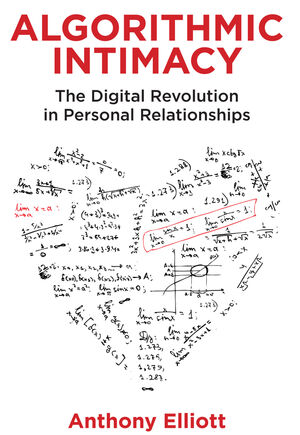Algorithmic Intimacy: The digital revolution in personal relationships
Polity Press, $32.95 pb, 220 pp
Intimate bonds
In May 2021, scientists at Woebot Health, a US-based artificial intelligence company, published a paper titled ‘Evidence of Human-Level Bonds Established with a Digital Conversational Agent’. Reading it back then, I felt like a door had suddenly opened from nowhere. But not just any door: this one led directly to a passage into human inner life and one of its most intimate dimensions: the nature and experience of emotional bonding.
Woebot claimed that the sort of empathetic bonds which help to motivate behavioural change through therapies like CBT (Cognitive Behavioural Therapy) are possible to form with an artificial intelligence chatbot. The implications for its marketing were clear. What might have seemed most human in therapeutic exchanges could in fact be automated, made available at scale, to anyone in need, at any time. ‘The ability to establish a bond, and to do so with millions of people simultaneously, is the secret to unlocking the potential of digital therapeutics like never before,’ states the company’s website. If ‘intimacy has a quality of enchantment’ (Anthony Elliott), then the human enchantment of therapeutic bonding was about to take off in app stores around the globe.
In 2018, I published an essay on the emerging complex of intimate data and machine intelligence, ‘O Brave New World That Has Such Data In’t: Love and self-understanding in an algorithmic age’ (PN Review 242). ‘With massive datasets,’ I wrote, ‘will come a revolution in the ways we understand ourselves and others. Love as an endless ontological striptease will meet the instant nakedness of data.’ In Algorithmic Intimacy: The digital revolution in personal relationships, Elliott, Professor of Sociology at the University of South Australia, develops an urgently needed framework for understanding what has rapidly become the ‘great digital revolution … in which these novel worlds of experience and experimentation make their presence felt in the brave new world of algorithmic modernity’.
Continue reading for only $10 per month. Subscribe and gain full access to Australian Book Review. Already a subscriber? Sign in. If you need assistance, feel free to contact us.











Leave a comment
If you are an ABR subscriber, you will need to sign in to post a comment.
If you have forgotten your sign in details, or if you receive an error message when trying to submit your comment, please email your comment (and the name of the article to which it relates) to ABR Comments. We will review your comment and, subject to approval, we will post it under your name.
Please note that all comments must be approved by ABR and comply with our Terms & Conditions.